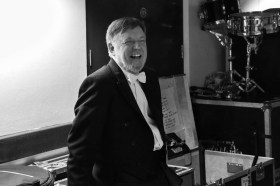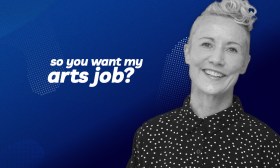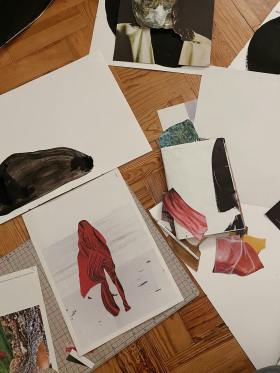Everyone is talking about the e-book reader. Most are ranting about it, some are cautiously praising it, a brave few might even go out and buy one. Meanwhile, back in the world of the traditional book, another publishing phenomenon has raised its head with remarkably little attention from the media.
Last month Tom Becker won the Calderdale children’s book prize for his first novel, Darkside. This is not surprising news for those who are familiar with the author. Last year the same novel also won Waterstone’s prize for children’s fiction. What is worthy of comment, though, is that the story and concept for Darkside were not generated by the author, but by focus groups.
The company behind Darkside is called Hothouse. They use market research to put story ideas to children, who are observed from behind a one-way mirror. Children are encouraged to describe their thoughts about which characters, plots and ideas they enjoy the most. The research is then used to commission writers, who create books to suit their young audience.
In this way the book becomes a bespoke product. Many other industries create their wares in this manner, so why not the publishing industry? The answer is because what writers create, or ought to create, is more than just a sellable product it is a work of art.
Art is important because it pushes boundaries. In the process of creation an inspired individual will generate previously unthought-of ideas. An artist is an artist because he or she is capable of this vision, whilst, in the main, a consumer is not.
To create a work of art to suit the consumer, therefore, is to limit the potential for creativity. These titles will necessarily be imitative – relying on the precedent of a liked narrative or character – rather than innovative. And this copycat style of publishing is already a negative tendency in the industry. Cautious publishers back books that follow in the wake of previous bestsellers. They promote not what is good and new, but what reads a bit like that book that did so well for Random House last year.
The debate about publishing by focus group highlights the age-old tension in the industry between the creative ambitions of the artist and the commercial concerns of the publisher. It is easy to rant about curtailing the imagination, but without sales, which seem guaranteed with custom-made titles such as these, publishers wouldn’t exist to create books at all.
That publishers have a necessary concern with the bottom line is undeniable. That creating a guaranteed bestseller rather than a slow-burning classic is more profitable, however, is debatable. As Emma John states, writing about focus groups, ‘Sometimes it doesn’t pay to give the public what they want.’
The example she gives is film based: ‘Ridley Scott’s Blade Runner was famously lumped with an ending he hated after focus groups found his original ending too negative. But then the critics hated it, and it wasn’t until 10 years later, when Scott released a director’s cut, that the happy ending was removed and the film got the acclaim it deserved.’
So tampering with a creative classic may please a contemporary audience, but it also compromises artistic merit. And since audiences for truly great works often grow over time, by doctoring a work, publishers could be limiting their own future profits.
It is no secret that attempting to make money from slow-burning classic literature is a tricky business, with poetry being the typical example. TS Eliot famously stated that ‘with most books you are aiming to make as much money as possible, with poetry you are aiming to lose as little as possible.’ But there are success stories amongst the classics, not least Eliot himself. As Jane Martinson notes, talking about the income provided to Faber by Eliot’s estate: ‘Few insiders like to talk about the fact that the global success of Cats, the musical based on Eliot’s work, bankrolled the company for much of the 1980s and early 90s and prevented it from falling foul of the sort of economic downturn that beset its rivals.’
Modernising the house that TS Eliot built
A similar example is the provision JM Barrie made for Great Ormond Street from just from one title. The sustained success of Peter Pan has provided the children’s hospital with ‘a significant but confidential source of income’. Would the same have been true if Barrie had succumbed to pressure from focus groups to adapt the work to a target audience?
The Story That Wouldn’t Grow Old
Perhaps the bastion of classic publishing is John Murray, whose list is full of literary successes, from Austen to Dickens. John Murray was taken over in 2002 by Hodder Headline in a move that led Robert McCrum to question whether, ‘as the smaller independent companies get bought out, swallowed up, is the passionate publisher that seeks out new and innovative authors dying out?’
Unfortunately, as we face an industry in which the consumer is king, this seems to be more and more the case. Large publishers, which McCrum describes as suffering ‘elephantiasis of imagination’ dominate the market. The ever-powerful consumers are cautious – they buy what they know. As children and adult focus groups choose the scenarios and characters with which they are familiar and comfortable, ultimately, more of the same titles will be published.
It is to the independents that we must look to buck this trend. As McCrum goes on to say ‘For every John Murray that is forced to sell out, there is a Short Books (or a Profile) ready to start from first principles.’ Or maybe the answer to this age-old struggle lies with the e-book. With the reduction in production costs and the democratising power of availability on the internet, the digital age may reduce financial risk for publishers and restore to writers a much-needed free creative rein.




